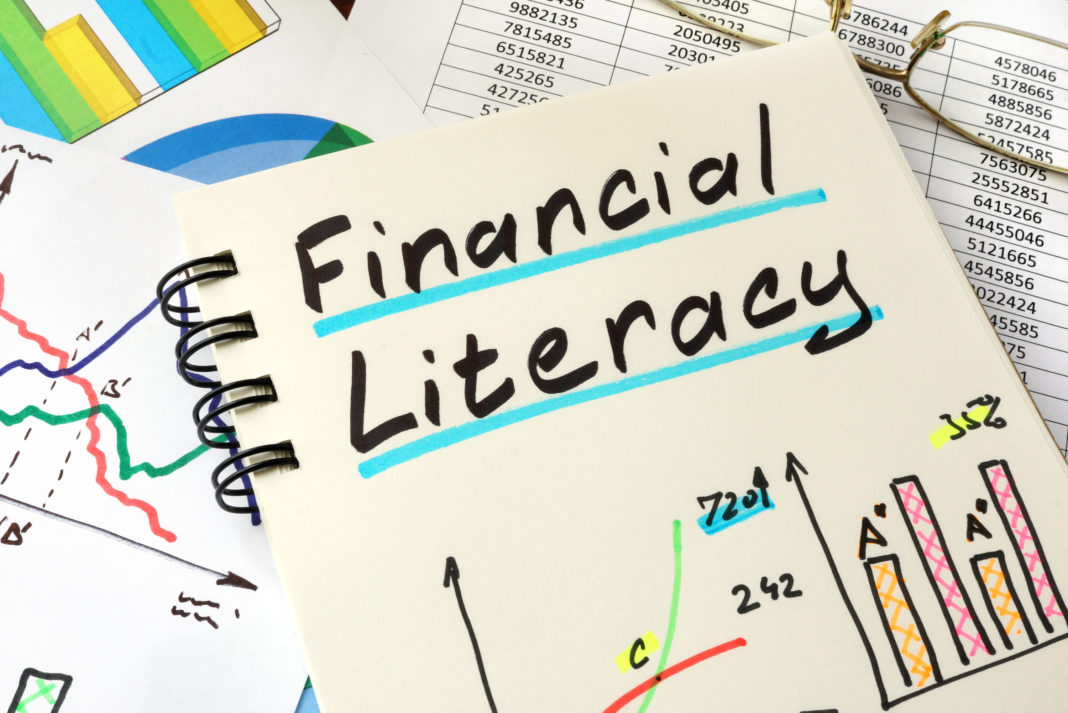1753Views

Educated but financially illiterate: Reason to be poor
“According to survey, 75% of educated Indians are financially illiterate.”
As surprising as the above fact may be, it’s even harder to digest. But it raises an important question—do we truly understand the distinction between being literate and being financially literate? Nearly 72% of people believe that simply holding a graduate degree or its equivalent means they’re fully literate.
What is it meant by being financially literate?
Financial literacy means understanding how money really works—how you earn it, manage it, invest it, and even use it to support others.
In simple terms: “It’s not about how much you earn—it’s about how much you’re able to save and manage.”
In today’s fast-paced college life, where students are gearing up for competitive careers, financial literacy is more than just useful—it’s a must-have life skill.
Understanding money basics is crucial because your financial decisions today will shape your future. No matter what you’re studying—whether you’re in an MBA program, engineering college, or pursuing liberal arts—every student should be familiar with key financial concepts like debit, credit, interest, EMIs, financial ratios, and the stock market.
Why students need financial literacy on campus
In India, more than half of the population is unaware of basic financial terms until they opt for a commerce background in high school. A quarter of the remaining population doesn’t even have access to quality secondary education, leaving them financially illiterate. These two factors largely explain why a significant portion of India’s population continues to fall within the middle-class or below-poverty-line segments.
College students often gain access to internships, stipends, or part-time jobs—but without a grasp of money management, they risk missing the chance to build a strong financial future. Campus life should go beyond academics; it should also equip students for real-world responsibilities, especially those involving finances.
Being educated is no longer enough.
Today, financial expectations are rising faster than incomes, and expenses keep piling up. In such a high-pressure environment, especially on campuses, students who lack financial literacy may find it difficult to cope, let alone thrive.
Educated people work for money, while financially literate people make money work for them. This mindset defines the difference between someone who remains in the rat race and someone who builds wealth.
For example, someone who completes engineering from a reputed MBA college in Mumbai with a high-paying job, but lacks financial planning skills, may still end up paycheck to paycheck. Meanwhile, a person with modest income and basic financial literacy can save, invest, and live more securely.
That’s where institutions like Vivekanand Business School (VBS Mumbai) play a key role. Counted among the best PGDM colleges in Mumbai, VBS goes beyond academic rigor to prepare students for real-life financial decisions. With focused specializations like Vivekanand PGDM in Banking and Finance, students are introduced to essential concepts like personal budgeting, credit systems, investment planning, and financial markets.
The Vivekanand PGDM program encourages students to think critically about money—how to use it wisely, grow it strategically, and avoid common financial pitfalls. It’s about building confidence to make informed decisions not just in careers, but in life.
Time to change the education system
India’s education system teaches us to compete and maximize our abilities. However, financial education is introduced late, and it’s not mandatory. This results in youth graduating with degrees but no financial know-how, leading to a rising number of financially struggling students and young professionals.
It’s time our college curriculum and campus life experiences include modules or workshops on budgeting, personal finance, investment basics, and tax planning to foster financially empowered graduates.
Conclusion
It is high time to make our country not just educated, but also financially literate—to help people rise out of poverty and contribute to national progress. Colleges and business schools must take the lead in embedding financial awareness into student life.
As it is rightly said,
“A person can be highly educated, professionally successful, and financially illiterate.”
But the time has come to change this to,
“A person can be highly educated, professionally successful, and financially literate.”
Deepesh S Jain
PGDM 2020-22
Vivekanand Business School

